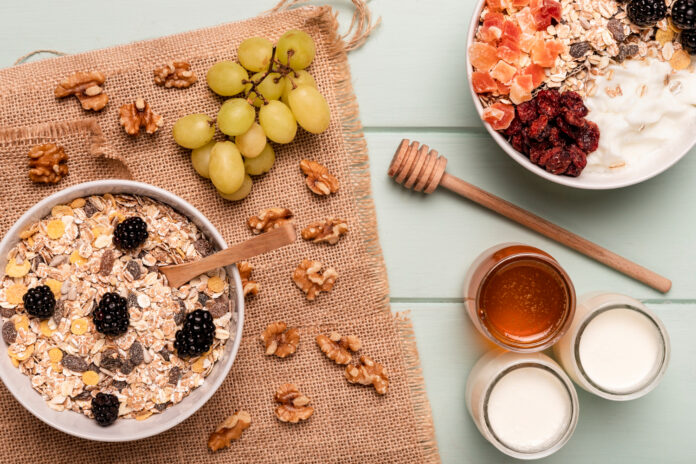Discover how oats can aid in weight loss and the best ways to incorporate them into your diet, according to nutrition experts
Oats, one of the oldest cereal grains, have long been touted for their health benefits. Rich in nutrients, they are particularly known for their high protein content and soluble fibre called beta-glucan. These attributes contribute to overall nourishment and are believed to support weight loss efforts. But does oatmeal really help shed those extra pounds? This article delves into expert opinions to separate fact from fiction regarding oats and weight loss.
The Health Benefits of Oats:
Oats are enriched with essential micro and macronutrients. According to WebMD, they contain more protein than many other grains and are loaded with beta-glucan, a type of soluble fibre. Nutritionist Gargi Sharma highlights that the soluble fibres in oats help lower cholesterol levels and improve intestinal transit time, reducing glucose absorption in the body. Additionally, antioxidants in oats, such as avenanthramides, help suppress high blood pressure by producing nitric oxide gas, which aids blood flow through vessels.
Do Oats Actually Help You Lose Weight?
While oats are nutrient-dense, they also contain starches due to their high carb content. This has led to some controversy in the health and fitness world. Nutritionist and Macrobiotic Health Coach Shilpa Arora explains that starch with a high glycemic index can lead to an insulin spike and increase diabetes risks if not consumed mindfully. Nutritionist Leema Mahajan adds that instant oats, which have a high glycemic index, can cause an immediate sugar crash when paired with sweet fruits. This may lead to increased sugar cravings, fatigue, and lethargy, counteracting weight loss efforts.
The Right Way to Consume Oats for Weight Loss:
To make oats a beneficial part of your weight loss diet, it’s crucial to consume them correctly. Nutritionist Anjali Mukherjee advises that oats alone won’t assist in weight loss unless part of a balanced diet. She recommends pairing oats with foods that have a low glycemic index and are high in fiber. This approach makes the meal more diabetes-friendly and supports weight loss. Mukherjee also suggests opting for steel-cut oats instead of instant varieties, as steel-cut oats provide slow and steady energy, aiding the weight loss process more effectively.
Now that you understand the best way to include oats in your diet, it’s essential to be mindful of your food choices and consult with a nutrition expert to tailor your diet regime to your specific needs.
Analysis:
Political: The oats for weight loss debate can influence food labelling regulations and dietary guidelines set by health authorities. As evidence about the benefits and risks of different types of oats emerges, policymakers might push for stricter labelling requirements to inform consumers better. This could lead to policies that promote healthier dietary choices and address public health concerns like obesity and diabetes.
Social: Socially, the discussion around oats and weight loss highlights the broader trend of seeking natural and whole foods for better health. As more people become health-conscious, the demand for transparent information about what they consume grows. This case underscores the importance of educating the public about how to make informed dietary choices, encouraging a shift towards healthier eating habits.
Racial: The way dietary advice is disseminated and adopted can vary across different racial and ethnic groups. Understanding the cultural significance and common dietary practices of various communities can help tailor nutritional advice to be more effective and inclusive. Promoting the benefits of oats, while addressing concerns about high glycemic index foods, should consider the diverse dietary habits and health needs of all racial groups.
Gender: Women and men may have different nutritional requirements and weight loss goals, influenced by factors like hormonal balance and metabolic rates. The inclusion of oats in a weight loss diet should consider these gender-specific needs. For instance, women might benefit from the high iron content in oats, especially during menstruation, while men might focus on the protein benefits to support muscle maintenance.
Economical: Economically, the oats market could see significant growth if they are widely accepted as a weight loss aid. Increased demand for oats might encourage farmers to cultivate more, impacting agricultural trends and market prices. Additionally, the popularity of oats could spur innovation in food products, leading to new oat-based items that cater to health-conscious consumers.
